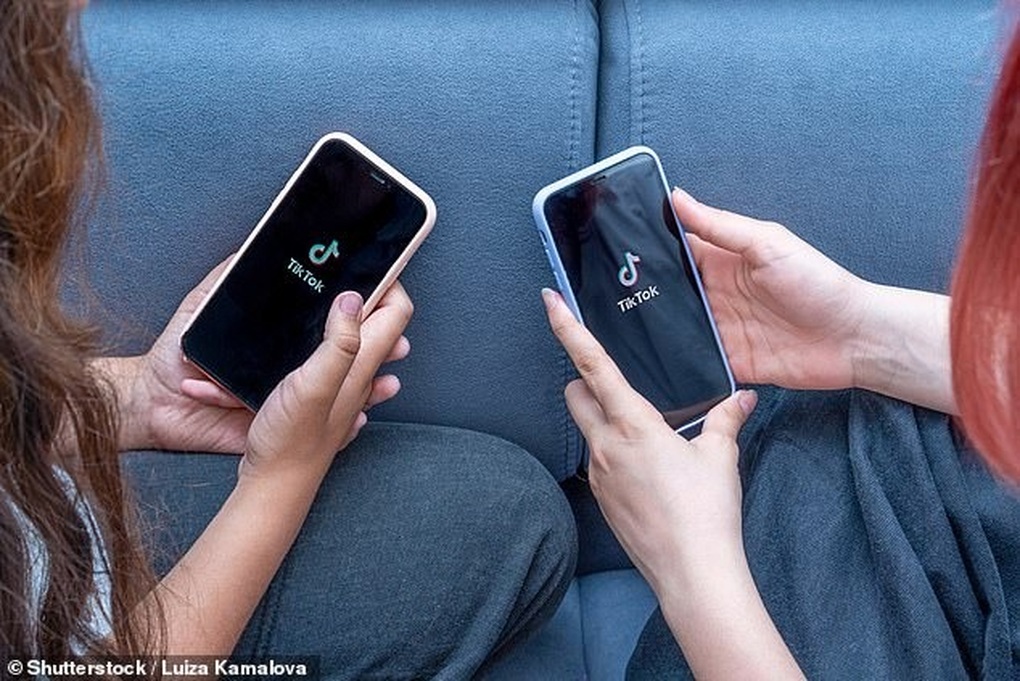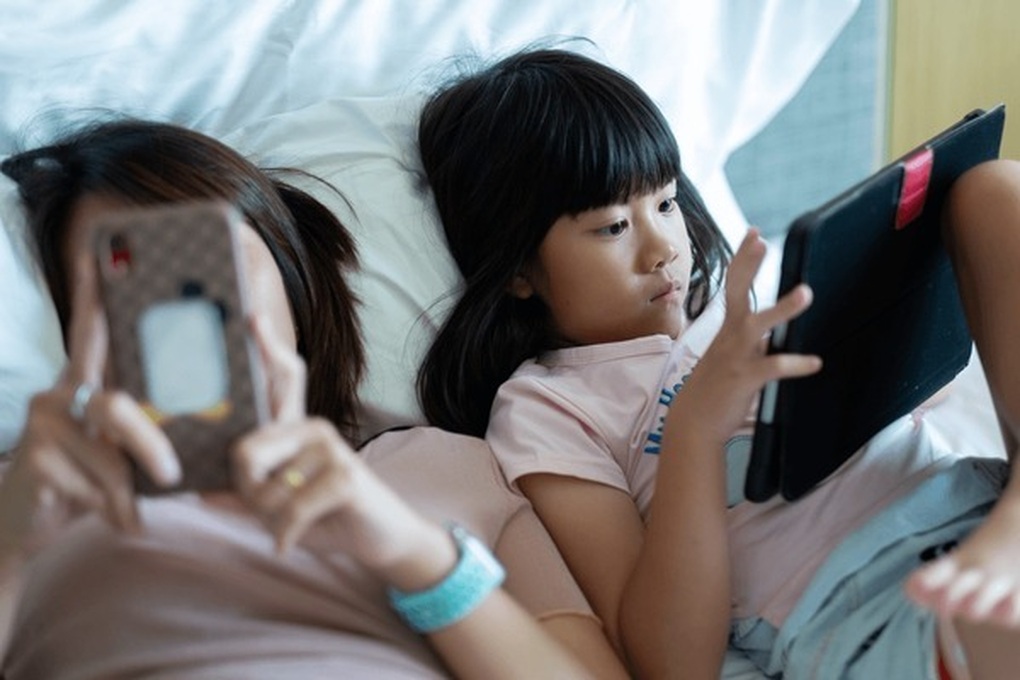Spend 25 years of life just using the phone
The study, conducted by Fluid Focus (UK) in the first 5 months of this year, tracked the device usage time of 1,346 high school students, 198 university students and 1,296 learners at othereducational institutions.
Accordingly, on average, each teenager participating in the survey spends about 5.5 hours per day using the phone. Calculated over the period from age 11 to age 83, or 72 years of life, the amount of time an individual uses the phone can be up to... 25 years.

Most students admit that their phones are the first thing they look at when they wake up (Illustration: DM).
Notably, 4% of the teens surveyed spend more than 9 hours a day on their phones. This group of teens will spend 41 years of their lives looking at screens.
The apps that took up the most time were social networking, messaging and streaming video . Screen time also increased with age, from an average of 5 hours and 12 minutes for high school students to 6 hours and 12 minutes for college students.
Most students admit that their phones are the first thing they look at when they wake up, and the last thing they interact with and use before going to bed.
68% said their studies were negatively affected in part because they used their phones too much. Despite being aware of this, about 40% of teenagers still regularly check their phones while studying, unable to break the habit.
Some psychological studies have shown that after checking the phone, users will need about 20 minutes to regain their initial concentration. Therefore, frequently checking the phone is really distracting, affecting concentration in studying.
Dr Paul Redmond, an expert on generational differences and director of student experience at the University of Liverpool, UK, said: “These figures are worrying. However, students themselves have felt the negative impact. Many want to take better control of themselves so that their learning outcomes can improve.”
47% of students surveyed said their sleep quality was also affected by using their phones at night. Among university students, this number increased to 66%.
Dr. Redmond shares a tried and true solution to controlling phone usage: wrap a rubber band around the phone, and remove it every time you want to use it. This slows down phone usage, forcing users to stop and think about why they picked up the phone.
Social disconnection, increased anxiety disorders
Ms. Lisa Humphries - Vice Principal of Chichester College Group (UK) - said that many students today are addicted to their phones. Many of them have anxiety disorders and seriously lack social interaction skills. The main reason comes from their lack of interaction and real-life experience.
The study authors recommend that schools incorporate digital health content into their curricula and development strategies. They also suggest shortening each class period to 30 minutes, to better match the attention span of today’s young generation.

In the current context, digital health content should be included in school curricula (Illustration: DM).
In addition, students should leave their phones outside the bedroom at least 45 minutes before going to bed. The research team recommends that the UK Government recognize technology abuse as a new issue in the community's mental health.
Glenn Stephenson, co-founder of Fluid Focus, a technology monitoring app, said society is facing an unacceptable truth: “We have inadvertently given children fascinating technologies during the most important stage of their development, without considering the long-term consequences.
The good news is that they are not indifferent. We see many students who are aware of the problems they are facing and who really want to change. What they need is the right support, the right tools and the belief that change is possible.”
A survey conducted by Fluid Focus with 2,000 British people aged 18 to 28 also showed that 75% of them are having difficulty maintaining attention when communicating, 39% are often urged to check their phones.
The most common distractions included social events (28%), conversations with friends (18%), and conversations with parents (17%). Notably, 28% of survey respondents said they couldn’t even concentrate while working.
On average, UK Gen Z (young people born between 1997 and 2012) will pick up their phone after just 2 minutes and 15 seconds of interacting with someone. Common actions include checking messages (48%), scrolling through social media (44%) and opening YouTube (18%).
The report also found that phone calls (32%), text messages (23%) and social media notifications (14%) were the biggest distractions, with 77% of respondents admitting they use their phones as a way to escape reality.
Source: https://dantri.com.vn/giao-duc/hoc-sinh-co-the-mat-toi-25-nam-cuoc-doi-chi-de-nhin-dien-thoai-20250710085737933.htm

































































































Comment (0)